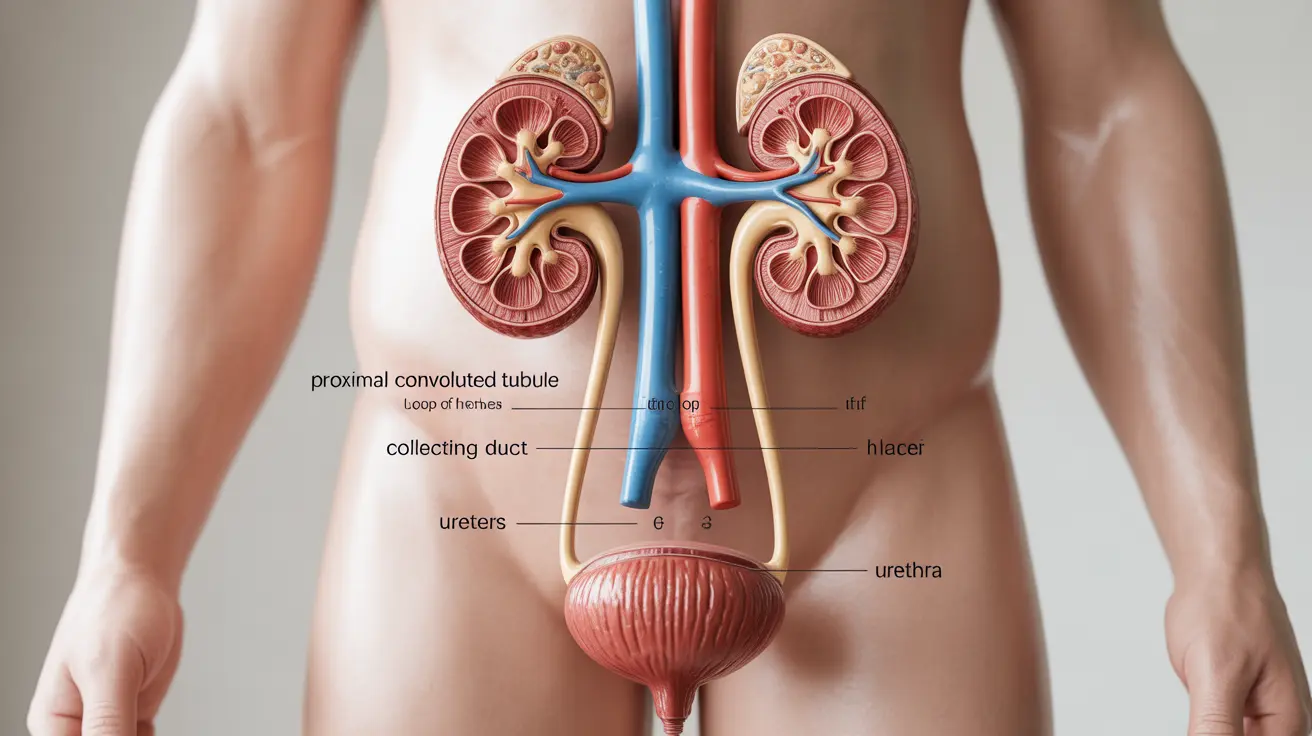Urine osmolality is a crucial medical test that measures the concentration of particles in urine, providing valuable insights into kidney function and overall health. This vital measurement helps healthcare providers assess how well your kidneys are concentrating or diluting urine, which is essential for maintaining proper fluid balance in your body.
Whether you're preparing for a urine osmolality test or trying to understand your results, this comprehensive guide will explain what normal urine osmolality means, factors that affect it, and its importance in diagnosing various health conditions.
What Is Urine Osmolality?
Urine osmolality measures the number of dissolved particles (solutes) per kilogram of water in urine. These particles include sodium, potassium, chloride, and other minerals, as well as waste products like urea. The measurement is expressed in milliosmoles per kilogram (mOsm/kg).
Your kidneys constantly adjust urine concentration based on your body's needs, making this test an excellent indicator of kidney function and hydration status.
Understanding Normal Urine Osmolality Ranges
Normal urine osmolality typically ranges from 300 to 900 mOsm/kg. However, these values can vary significantly throughout the day based on several factors:
- Fluid intake
- Time of day
- Diet
- Physical activity
- Environmental conditions
- Overall health status
Morning urine samples usually show higher osmolality because the body tends to concentrate urine more during sleep.
Factors Affecting Urine Osmolality
Hydration Status
Your fluid intake directly impacts urine osmolality. When you're well-hydrated, your kidneys produce more dilute urine with lower osmolality. Conversely, dehydration results in more concentrated urine with higher osmolality as your body tries to conserve water.
Medical Conditions
Several health conditions can affect urine osmolality levels:
- Diabetes insipidus
- Kidney disease
- Syndrome of inappropriate antidiuretic hormone (SIADH)
- Adrenal insufficiency
- Severe infections
Medications
Certain medications can influence urine osmolality results:
- Diuretics
- Antidiuretic hormone (ADH) medications
- Corticosteroids
- Some antidepressants
The Testing Process
A urine osmolality test is simple and non-invasive. It typically involves providing a clean-catch urine sample at your healthcare provider's office or a laboratory. Sometimes, multiple samples may be collected over 24 hours for a more comprehensive assessment.
Clinical Significance
Healthcare providers use urine osmolality measurements to:
- Evaluate kidney function
- Assess hydration status
- Diagnose specific medical conditions
- Monitor treatment effectiveness
- Screen for various metabolic disorders
Frequently Asked Questions
- What is the normal range for urine osmolality and what does it indicate about kidney function?
Normal urine osmolality ranges from 300 to 900 mOsm/kg. This range indicates that your kidneys can properly concentrate and dilute urine in response to your body's needs. Consistently abnormal values may suggest kidney dysfunction or other medical conditions.
- How does my fluid intake affect urine osmolality levels?
Fluid intake has a direct impact on urine osmolality. Higher fluid intake typically results in lower osmolality as your urine becomes more dilute, while reduced fluid intake leads to higher osmolality as your body conserves water and produces more concentrated urine.
- What health conditions can cause abnormal urine osmolality results?
Various conditions can affect urine osmolality, including diabetes insipidus, kidney disease, SIADH, adrenal insufficiency, and severe infections. Both abnormally high and low values can indicate specific medical conditions requiring further evaluation.
- How should I prepare for a urine osmolality test to ensure accurate results?
Follow your healthcare provider's specific instructions, which may include maintaining normal fluid intake, avoiding certain medications temporarily, and using proper clean-catch collection techniques. Morning samples are often preferred as they tend to be more concentrated.
- Why is urine osmolality testing important for assessing dehydration or water balance in the body?
Urine osmolality testing helps evaluate hydration status because it directly measures how concentrated your urine is. Higher values often indicate dehydration, while lower values typically suggest proper hydration or excessive fluid intake. This information is crucial for maintaining proper water balance and overall health.




